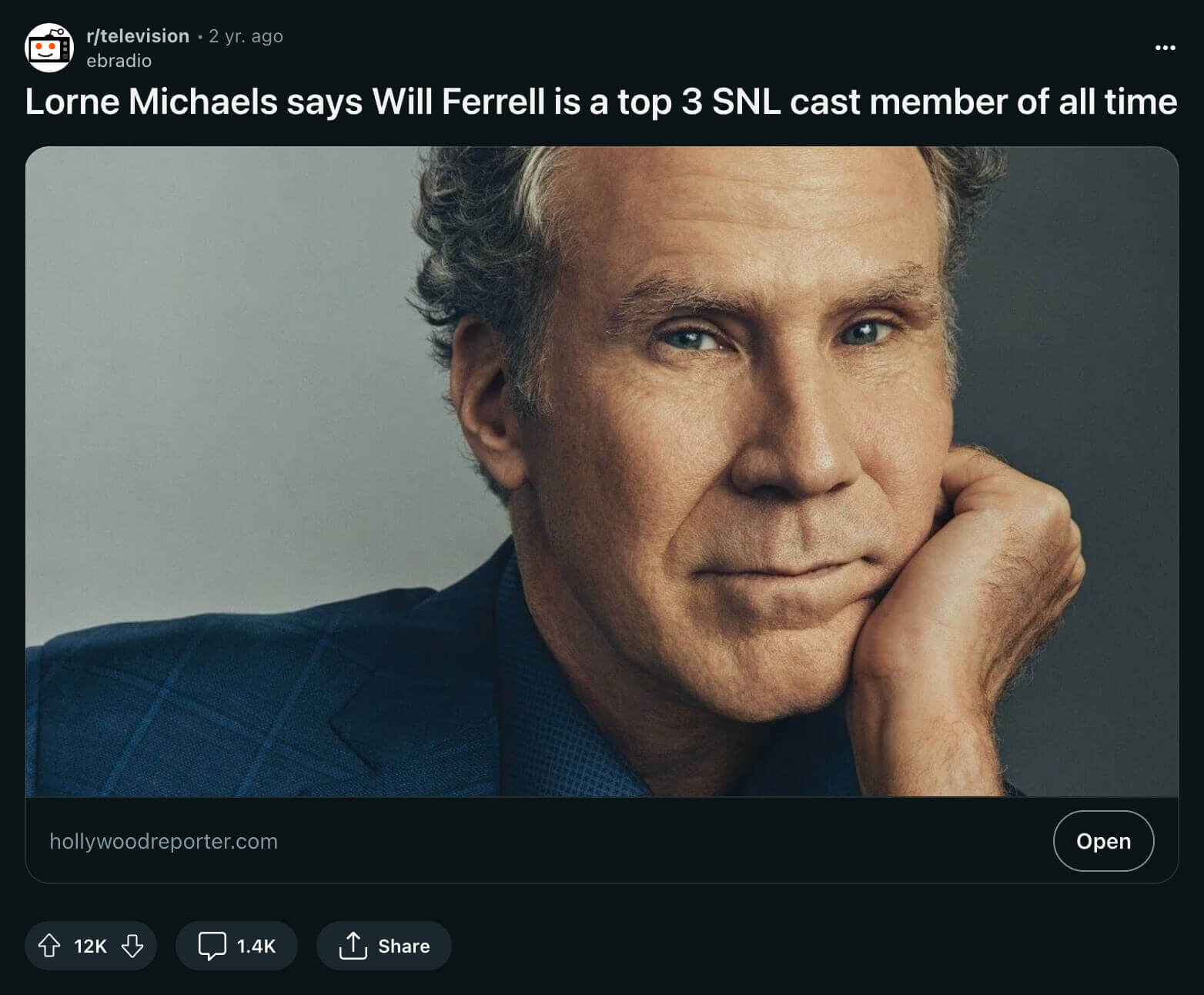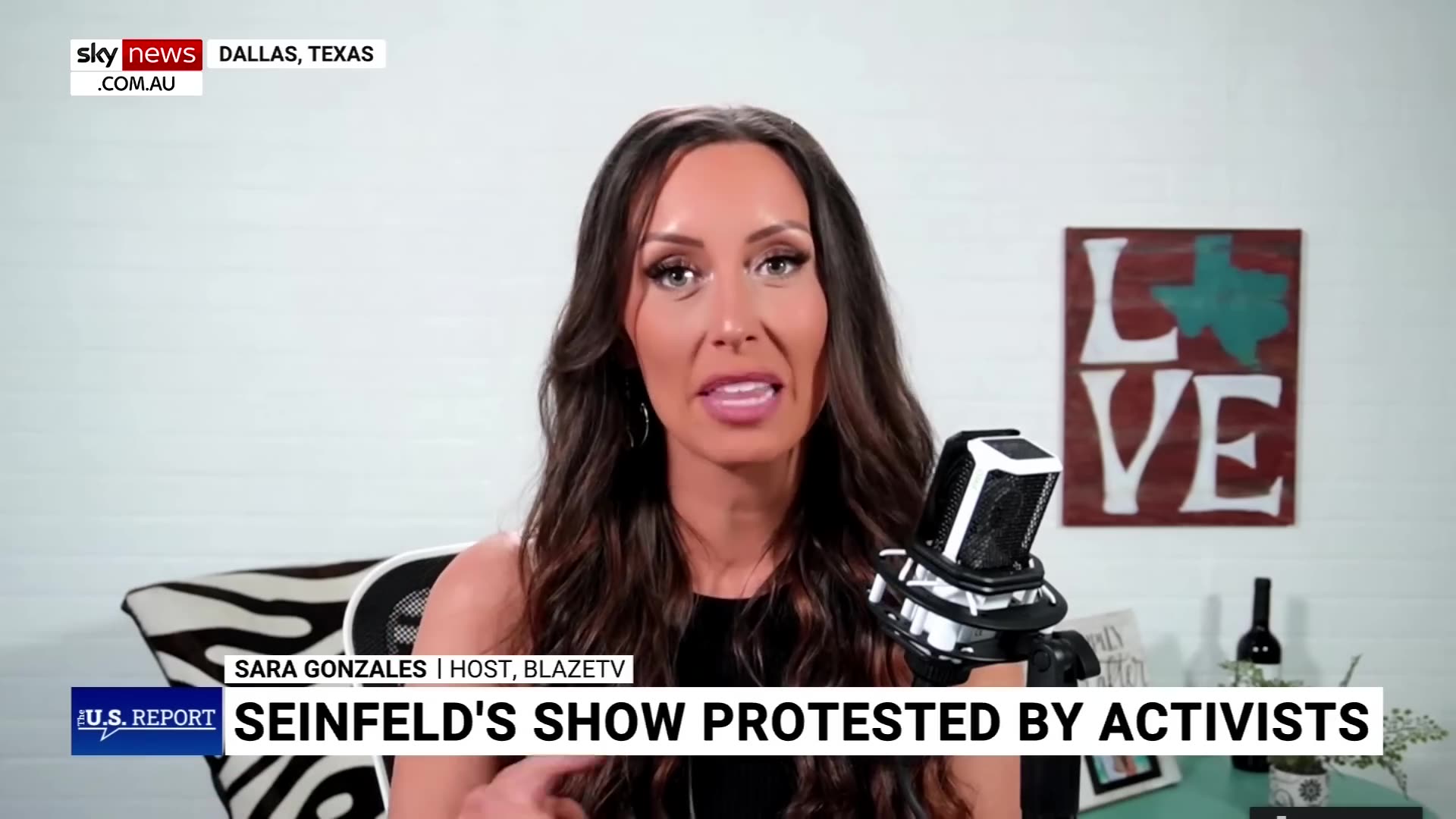Let's be real here—Saturday Night Live used to be the ultimate comedy show, but now people are asking why is SNL not funny anymore. It’s like when your favorite band releases an album that just doesn’t hit the same notes. Fans are scratching their heads, wondering what went wrong. Is it the writing? The cast? Or is it just us getting older and tougher to impress?
SNL has been around for decades, and over the years, it’s had its fair share of golden moments. From classic sketches to unforgettable performances, the show has been a cultural phenomenon. But lately, something feels off. It’s like the spark is missing, and audiences are starting to lose interest. So, let’s dive into this and figure out why SNL isn’t as funny as it used to be.
Now, I’m not here to bash SNL. I mean, the show has produced some of the biggest names in comedy today. But the truth is, the laughter isn’t as loud as it used to be, and the jokes don’t land as hard. There’s a reason people are asking these questions, and we’re going to explore that in this article. Let’s break it down and see if we can find out what’s really going on behind the scenes.
- Why Lv Swimsuit Is The Ultimate Fashion Statement This Summer
- Whatrsquos The Deal With Smothers Theater A Deep Dive Into The World Of Comedy And Drama
Table of Contents
- The History of SNL
- Cast Changes: Who’s In, Who’s Out?
- Is the Writing to Blame?
- How Has the Audience Evolved?
- Shifting Comedy Trends
- Production Values: Are They Keeping Up?
- The Political Climate’s Impact
- Why Are the Sketches Not Hitting?
- Do Celebrity Guests Still Matter?
- Where Is SNL Headed?
The History of SNL: From Glory Days to Question Marks
Back in the day, SNL was the place to be. It launched the careers of comedy legends like Chevy Chase, Eddie Murphy, and Tina Fey. The show was fresh, edgy, and unapologetically hilarious. But fast forward to today, and you might find yourself asking, "why is SNL not funny anymore?"
When SNL first premiered in 1975, it was a breath of fresh air. It tackled politics, pop culture, and everything in between with a level of wit that audiences hadn’t seen before. The show became a staple of American television, and its influence was undeniable. But somewhere along the line, things started to change.
Now, don’t get me wrong—SNL still has its moments. There are sketches that land and performances that make you laugh. But the consistency just isn’t there anymore. It’s like the show is trying too hard to be relevant, and it’s losing its edge in the process.
- Hair Twist For Women The Ultimate Guide To Stylish And Versatile Looks
- Is Timotheacutee Chalamet Bisexual Unpacking The Rumors Facts And Truth
Key Milestones in SNL's Journey
- 1975: SNL debuts with a star-studded lineup.
- 1980s: The golden era of Eddie Murphy and Bill Murray.
- 1990s: A new wave of talent emerges, including Chris Farley and Mike Myers.
- 2000s: Tina Fey and Amy Poehler bring a fresh perspective.
- 2020s: Questions about the show's relevance arise.
Cast Changes: Who’s In, Who’s Out?
One of the biggest factors contributing to the decline in SNL’s humor is the constant cast turnover. Sure, it’s exciting to see new faces, but sometimes the chemistry just isn’t there. The cast members need time to gel, and that takes episodes—sometimes even entire seasons.
Take a look at the current lineup. While there are some talented individuals, they’re not getting the same level of support from the writing team. It’s like putting a great singer on stage without a band to back them up. The result? A performance that falls flat.
And let’s not forget about the veterans. When legends like Will Ferrell and Amy Poehler left, the show lost a bit of its charm. It’s not just about the individual talent—it’s about the collective energy that makes SNL work. Without that, it’s hard to keep the laughs coming.
Current Cast vs. Legends
- Current Cast: Colin Jost, Michael Che, Kenan Thompson.
- Legends: Eddie Murphy, Chris Rock, Tina Fey.
Is the Writing to Blame?
Let’s talk about the elephant in the room—the writing. If you’re asking yourself, "why is SNL not funny anymore," the writing team might be part of the problem. Over the years, the quality of the scripts has fluctuated, and it’s starting to show.
The writers need to stay ahead of the curve. They have to anticipate what audiences will find funny before it becomes mainstream. But lately, it feels like they’re playing catch-up. The jokes are predictable, and the humor feels forced. It’s like they’re trying too hard to be relevant, and it’s backfiring.
And don’t even get me started on the monologues. They used to be the highlight of the show, but now they’re just lukewarm. It’s like the writers are phoning it in, and the audience can tell.
Writing Team Challenges
- Keeping up with rapidly changing cultural trends.
- Appealing to a diverse audience with varying senses of humor.
- Maintaining the show's edge while avoiding controversy.
How Has the Audience Evolved?
The audience has changed, and that’s something SNL needs to acknowledge. Back in the day, the show catered to a specific demographic—college students and young professionals who were in tune with the latest trends. But now, the audience is more diverse, and their sense of humor reflects that.
Millennials and Gen Z have different comedic tastes than Baby Boomers and Gen X. They’re more into absurdist humor and satire, and SNL hasn’t fully embraced that shift. It’s like the show is stuck in a time warp, trying to appeal to an audience that no longer exists.
Plus, with the rise of streaming services and social media, people have more options than ever before. If SNL doesn’t step up its game, viewers will move on to something else that makes them laugh.
Changing Audience Preferences
- Increased demand for diverse representation.
- Shift toward digital-first comedy content.
- Preference for shorter, punchier humor.
Shifting Comedy Trends
Comedy trends come and go, and SNL needs to stay on top of them. What worked in the 80s and 90s might not fly today. The show has to adapt to the times, or it risks becoming irrelevant.
Take a look at other comedy shows and platforms that are thriving right now. They’re experimenting with new formats, incorporating different styles of humor, and engaging with their audiences in innovative ways. SNL needs to take a page from their playbook if it wants to stay competitive.
And let’s not forget about the power of social media. Shows that leverage platforms like TikTok and Instagram are seeing huge success. They’re creating content that’s shareable and memorable, and that’s something SNL could learn from.
Modern Comedy Platforms
- TikTok: Short-form, viral humor.
- Netflix: High-quality, binge-worthy comedy specials.
- YouTube: User-generated content that resonates with audiences.
Production Values: Are They Keeping Up?
Production values play a big role in the overall experience of watching SNL. The show needs to look and feel modern, or it risks alienating younger viewers. High-definition cameras, sleek set designs, and cutting-edge technology are all part of the equation.
But lately, it feels like SNL is stuck in the past. The sets look dated, and the lighting could use an upgrade. It’s like watching a black-and-white movie in a world of vibrant color. The production team needs to step up their game if they want to keep up with the competition.
And let’s not forget about the music. The show’s iconic theme song is timeless, but the background music during sketches could use some freshening up. It’s the little things that make a big difference.
Improving Production Quality
- Investing in modern technology and equipment.
- Updating set designs to reflect current trends.
- Enhancing soundtracks and background music.
The Political Climate’s Impact
The political climate has a significant impact on SNL’s humor. When the show first started, it was known for its bold, unapologetic take on politics. But now, it feels like the writers are tiptoeing around sensitive topics, and that’s killing the comedy.
Audiences want to see satire that’s sharp and fearless. They want to laugh at the absurdity of the political landscape, not cringe at watered-down jokes. SNL needs to find a way to strike that balance without offending anyone—or at least without offending too many people.
And let’s be honest—the political landscape is more polarized than ever. That makes it harder for SNL to find common ground with its audience. But if the show can rise to the challenge, it could be the comeback it needs.
Navigating Political Humor
- Finding the right balance between humor and sensitivity.
- Addressing controversial topics without alienating viewers.
- Staying relevant in a rapidly changing political environment.
Why Are the Sketches Not Hitting?
Let’s talk about the sketches—the heart and soul of SNL. If they’re not working, the whole show falls apart. So, why are they not hitting anymore?
One reason could be the lack of originality. It’s like the writers are recycling old ideas instead of coming up with fresh ones. The sketches feel formulaic, and that’s not what audiences want. They want to be surprised, entertained, and maybe even a little challenged.
Another issue is the length of the sketches. In today’s fast-paced world, attention spans are shorter than ever. SNL needs to adapt by making their sketches shorter and punchier. It’s about quality over quantity.
Improving Sketch Quality
- Encouraging more original ideas from the writing team.
- Shortening sketches to keep audiences engaged.
- Incorporating diverse voices and perspectives.
Do Celebrity Guests Still Matter?
Celebrity guests have always been a big draw for SNL, but do they still matter in today’s crowded media landscape? The answer is yes—but only if they’re the right guests.
Audiences want to see performers who can bring something new to the table. They want to see chemistry between the cast and the guests, and they want to see performances that are memorable. If the guests are just phoning it in, the whole episode suffers.
And let’s not forget about musical guests. They play a big role in the show’s success, and SNL needs to keep booking top talent if it wants to stay relevant. The music industry is constantly evolving, and SNL needs to evolve with it.
Choosing the Right Guests
- Selecting performers who can elevate the show.
- Booking musical acts that resonate with younger audiences.
- Creating chemistry between guests and the cast.
Where Is SNL Headed?
The future of SNL is uncertain, but there’s hope. If the show can address the issues we’ve discussed—writing, casting, production values, and more—it could make a comeback. It’s not impossible, but it will take effort and commitment from everyone involved.
Audiences want to love SNL again. They want to laugh until they cry and talk about the show with their friends on Monday morning. It’s up to the creators to make that happen.
- Michael Mcdermott The Untold Story Of A Gaming Legend
- Who Died Today At 55 Unveiling The Latest Celeb Departures And Their Legacy


